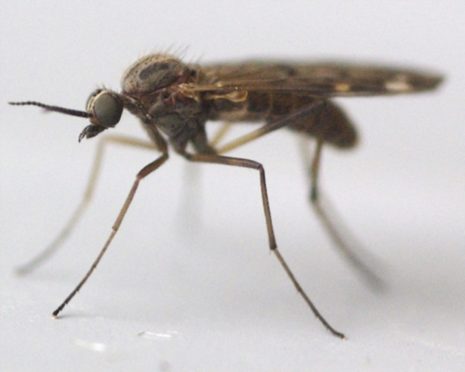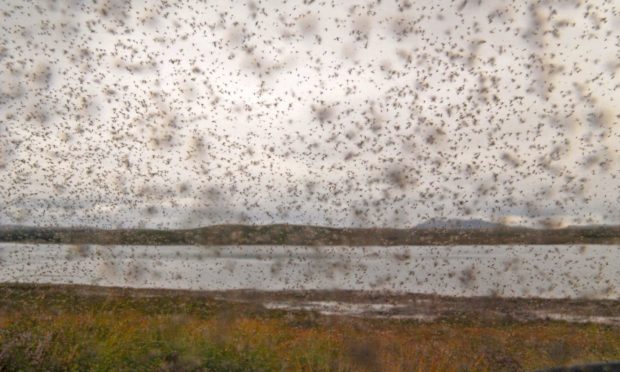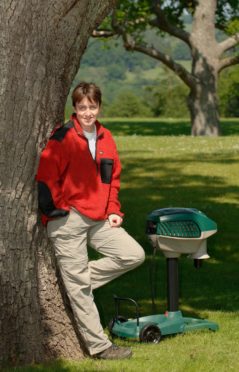This summer has been the worst on record for swarms of midges, says the biting beasties’ official forecast recorder.
Midge expert Dr Alison Blackwell said the numbers of midges recorded throughout the summer were 20% up on last year and “several percentage points” up on the peak of 2018.
Dr Blackwell – whose company also makes the repellent Smidge – did benefit from a silver lining from the perfect swarm.
She said the huge numbers of staycationers had also seen UK sale of Smidge double to a staggering 250,000.
Fort William and the north-west were the midge hotspots this year, she said.
Dr Blackwell, director of Dundee-based APS Biocontrol Ltd, said she was still analysing this year’s data, but it was “clear” that 2021 had been a vintage year for the biting beastie.

“It is a record year – 20% up on last year. It is unclear at this stage whether we will have a third hatch. But either way the numbers have been at record levels and especially so for many locations,” she said.
“June and July were particularly good, but we will see numbers tail off and disappear by around the end of the month unless there is more warm and wet weather and then watch out again. We are already several percentage points up on 2018, which was the previous peak.
“I had an email recently from a woman at Loch Ness who said she has never known anything like it – her home was full of them at night, biting away.
“It is unusual to see such levels so late in the midge season, but it has been warm and wet – just what they like.
“Some places have suffered an absolute plague – the worst people have known. But numbers will soon plummet.”
Repellent drought
There was such huge a demand for midge repellent that Scotland’s main eco-friendly supplier even ran out for the first time.
The makers of Smidge sold a record 63,000 cans in June – but half way through July another 63,000 flew off the shelves leaving a repellent drought for a short while.
In the face of such demand production proved not up to scratch, but was ramped up.
Dr Blackwell said: “It seems like everybody came to Scotland on staycation at the same time only to find the midges out in full force. If they will come next year after such an experience, who knows?”
The Scottish tourism industry is estimated to lose about £286 million-a -year because of the voracious and swarming insects.
A previous study also found that many tourists said they would not return to Scotland at the same time of year because of the biting beastie.
Dr Blackwell, who runs the official Scottish Midge Forecast, added: “About 7C is the cut-off point for a midge to fly. The only good news I can offer is that midges do not like it hot and dry.
“The numbers fall quickly in hot spells. They only have a 2mm wingspan so they become dehydrated quickly.”

